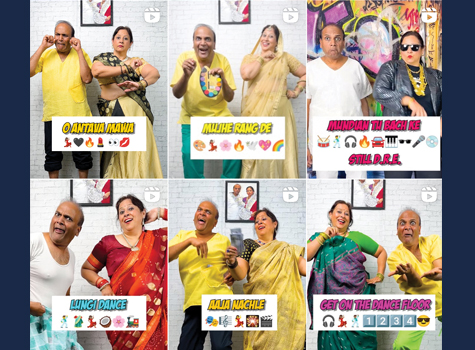By Balaji Prasad

“There is no one alive who is youer than you.” ~ Dr. Seuss
You say you have goals, priorities, philosophies and ways of being? Do you, really?
It’s not uncommon to have one’s words live in a parallel universe that bears little resemblance to the real one. You could believe something to be true in the little universe concocted inside your head while the big universe moves where it moves, like a juggernaut, paying little respect to such unruly mind games that you play within yourself.
While it is easy to see that you can get some things wrong, and suffer from some illusions that arise from words, could you even be wrong about your own self and what such a “self” cares about? Is that possible?
The selfless self
Paraphrasing Lewis Carroll (“If you don’t know where you are going, any road will get you there.”) … If you don’t know what your self is, any self can be your self.
Aye, there’s the rub, as Hamlet might have mused, as he pondered the possibility of ending his physical self. Here, we are, of course, not musing about the physical self; we are pondering the amorphous self that we call our “I”. And, horror of horrors, unbeknownst to us, it may well be dead or dying. Or at least stunted by various impediments that we are barely aware of.
That’s a bit of a problem. If the self that you have been thinking you own and shape is not really your self, nor exclusively shaped by you, then what does it really mean when you say “I” or “my”, and you discuss your goals and priorities? Whose goals and priorities are these really, if they are not yours?
Unpreferred pronouns: them/they
In the last decade or so, the notion of preferred pronouns has emerged. While the motivation behind that movement is different, that turn of phrase offers an interesting stimulus to motivate thinking about whether we are using the right pronouns for ourselves.
Is it possible that when we say, “I want this”, it might actually be more accurate if we phrased it as “they want this”? Is it possible that we might be possessed? By some spirits that we are completely unaware of? And, that this thing that we call the “I” may just be one more word that takes us far far away from what the reality underlying that word may be?
One way to see what your “I” really is, in practice, is to see the kinds of things that you proclaim to be “my” attributes. For example, you may say that you do certain rituals because you are from an Indian culture. Or, if you are the child of Indian immigrants, raised in the USA, you might practice a different set of customs and rituals. You may justify these ways of being and doing by saying “I am an Indian” or “I am an Indian-American” or “I am a Millennial Indian-American”. Therefore!
So, when the “I” has become a member of a class of people, and you believe and do the things that the class of people does, then your “I” has crossed over into the kingdom of “them” and “they”. But there is a price of entry into the land of them/they: your “I” must die; or, at least, be buried under the word “I which no longer means what the word purports to be.
Help! I am no longer me! How do I reclaim the thing that was born to be me?
Exorcise! Exorcise! Exorcise!
The idea of exercising to keep the body fit is grounded in reality: it is provable that it makes you more capable. You shed fat and build muscle. Maybe, the regular exercise of the spirit would be a way to keep your “I” in shape too, and build those “muscles”? And shed the “thems” and “theys” that are the unwanted fat that could make it more difficult for you to live in the real world that you would otherwise be able to live in. As you: the one and only you!
It would be more appropriate to call this “exorcise” rather than “exercise”, since it involves the shedding of the various spirits that have come to possess you from those around you, along with their ways of being. And with all the attendant adverse effects and loss of options that you might avoid, were you to live more “organically”: as a real “I” in the real world, rather than an entangled-I in an Alice in Wonderland world with all its fantasies.
Then, when you say, “I want x”, it would really mean that you do, not someone else who possesses your spirit who wants what someone else wants who wants what someone else wants… and so on. The accidental pot of gold in all this is that you may find that you want fewer things than you thought you wanted, and that these things are more wholesome, more organic and more grounded in the real world. And that you have a lot more options in what you do than you thought you did.
Then, there is no more “the done thing” that represents the many many things that you do because the members of classes you think you belong to do. There are only the things that you do: simple, small and organic. And… on the ground.
Balaji Prasad is an IIT/IIM graduate, a published author, SAT/ACT Online and in-person Coach, and K-12 Math Tutor at NewCranium. Contact: balaji.prasad@newcranium.com.



